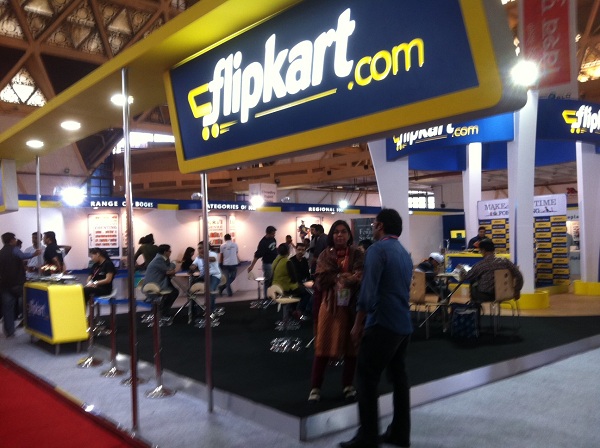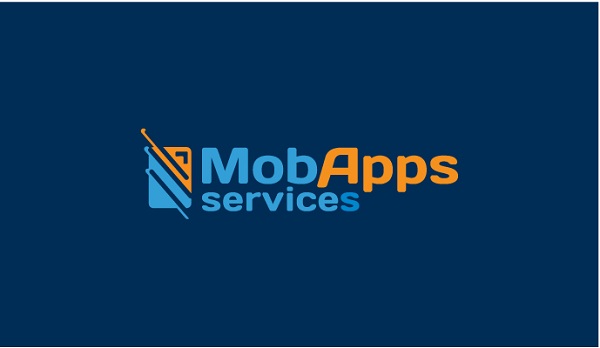
by Editor | May 25, 2021 | Commodities, Corporate, Corporate Buzz
 Bengaluru : (IANS) E-commerce company Flipkart on Friday said it has acquired Unified Payments Interface (UPI) startup PhonePe, which was founded by its former employees.
Bengaluru : (IANS) E-commerce company Flipkart on Friday said it has acquired Unified Payments Interface (UPI) startup PhonePe, which was founded by its former employees.
PhonePe, founded by Sameer Nigam and Rahul Chari, allows users to transact with a unique identification and mobile phone number or virtual payment address, eliminating the need to share other voluminous banking details.
“In contrast to the present payments process, which involves entering numerous account/card details and multi-level interventions, UPI will provide a highly secure hassle-free digital payments experience,” said a Flipkart statement.
Without specifying the acquisition value, Flipkart CEO Binny Bansal said, “Payment has been one of the biggest hurdles for mass adoption of online shopping in India. UPI has the potential of transforming the entire payments ecosystem in the country.”
Scheduled to go live in April, PhonePe will transition into Flipkart but will operate as an independent business unit, the statement added.

by Editor | May 25, 2021 | Markets, Technology
 Bengaluru:(IANS) Leading e-retail major Flipkart on Monday said it has sold 150 million products till date this calendar year, registering a whopping 150 percent growth over last year.
Bengaluru:(IANS) Leading e-retail major Flipkart on Monday said it has sold 150 million products till date this calendar year, registering a whopping 150 percent growth over last year.
“We have witnessed a 150 percent growth in the number of products (units) sold as compared to 2014,” the city-based company said in a statement here.
Though the company has not mentioned the comparative growth period in the statement, its spokesman told IANS that the sales figure (units sold) was for the “first eight months till date of this calendar year”.
“Fashion, lifestyle, home and consumer electronics were among top selling categories, while Bengaluru, New Delhi, Chennai, Pune, Coimbatore and Ahmedabad were top cities in terms of traffic,” the statement added.
The eight-year-old e-commerce player offers about 30 million products across 70 categories, including books, media, consumer electronics and lifestyle to its 45 million registered users.
“From new categories and products to innovative last mile delivery, we have created a seamless experience for Indian shoppers,” Flipkart co-founder and chief executive Sachin Bansal said on the occasion.
Besides catering to buyers, with 10 million visits (hits) daily, the company also provides an e-platform for sellers to reach a wider customer base.
“This milestone is testimony to the scale we have built from our selection to technology platform to supply chain capabilities,” platform head Mukesh Bansal asserted.
The company is working on selling a billion products in a year through the digital platform.
“With 30,000 sellers, our customers have access to a wide range of products across categories and geographies,” the statement said.
New categories like home and furnishing have done well since their launch.
“The way Indians shop has undergone a sea change and we foresee e-commerce apps (applications) emerging as the preferred shopping route, as evident from 75 percent of our traffic coming via mobile,” the statement added.

by Editor | May 25, 2021 | Investing

By Aparajita Gupta and Sharon Thambala
New Delhi/Bangalore:(IANS) With 975 million mobile phone connections in India and penetration at 140 percent in urban areas, many e-commerce firms see apps as the way forward to push sales, with some even planning to make it their exclusive delivery platform. Is it feasible?
Industry stakeholders feel mobile apps are the way forward. But they cannot be the sole medium.
Recently, homegrown e-commerce major Flipkart, at an internal meeting, disclosed that the company planned to go the only-mobile-app-way by September. Earlier Myntra, which was acquired by Flipkart, also went app only.
“India is gradually transitioning from a mobile-first to a mobile-only country,” a Flipkart spokesperson told IANS, alluding to the fact that net addition in fixed-line telephony in India had been in the negative for a few years now.
“At Flipkart, we have been following a mobile-first approach and 70-75 percent of our total traffic is already coming from our mobile app,” the spokesperson said.
“We are constantly experimenting with various aspects of our service to create the best shopping experience for our users on our app. Meanwhile, we continue to offer desktop as well as mobile option for our customers,” the spokesperson added, without going into the internal plan.
According to a study by PriceWaterhouseCoopers, only 10 percent of the mobile users in 2013 had smartphones and barely five percent of the ecommerce transactions were through a mobile device. This figure has more than doubled to 13 percent of all ecommerce transactions via mobiles.
“According to some industry players, over 50 percent of the orders are being placed through mobile apps, which is not only leading to substantial customer acquisition but also building customer loyalty for various brands,” the study said.
But experts also said the regular computer-based e-commerce also cannot be ignored. According to Rajan Anandan, managing director of Google India, some 500 million people will be online in the country by 2018. The numbers in rural areas will top 210 million.
“We think app is the way to go but it shouldn’t be the only medium,” said Nasir Jamal, secretary general of eCommerce Association of India (ECAI), an umbrella organisation for the industry with over 100 members.
“This is because a considerable number of people still shop on their desktops. Since 3G, and now 4G, costs of mobile internet is still high, a large number of customers order through their PCs or laptops,” Jamal told IANS.
Asked whether going app only was a feasible proposition, he said: “When Myntra went app only in May, it reported a dip of about 10 percent in sales in the first month. Therefore, I will like to reiterate that app only platforms would lose out on a major chunk of revenues.”
Another Indian e-commerce player, Snapdeal, said that it would focus on both platforms.
“At Snapdeal, the customer is at the centre of all initiatives. Our data shows there are still many customers who use PCs to shop online,” a Snapdeal spokesperson told IANS.
“We do not want to force our customers to use one specific medium to shop on Snapdeal. We will continue to offer our services on both PC and mobile. We do not see this changing in the near future,” the spokesperson told IANS.
The size of the ecommerce market in India is around $20 billion and it is growing at an average growth rate of about 40-50 percent per annum, according to ECAI.
According to Ankit Deb, co-founder of Bizongo, a B2B e-commerce platform that taps the plastics, chemicals and packaging markets, the mobile app is a strong and powerful tool because one is always logged in.
“The kind of people we deal with are suppliers, essentially small and medium businesses, who are probably not very tech savvy. But they have accounts in Flipkart, Snapdeal, Indiamart and such platforms,” Deb said.
“Imagine a situation where instead of logging in again and again you are always online through an app which enables real-time, organic transactions and engagement. But that is missing on a Web site or a desktop. Organic engagement is a powerful tool, you can’t do away with that.”
(Aparajita Gupta can be contacted at aparajita.g@ians.in <mailto:aparajita.g@ians.in> and Sharon Thambala at sharon.t@ians.in <mailto:sharon.t@ians.in>)

 Bengaluru : (IANS) E-commerce company Flipkart on Friday said it has acquired Unified Payments Interface (UPI) startup PhonePe, which was founded by its former employees.
Bengaluru : (IANS) E-commerce company Flipkart on Friday said it has acquired Unified Payments Interface (UPI) startup PhonePe, which was founded by its former employees.
